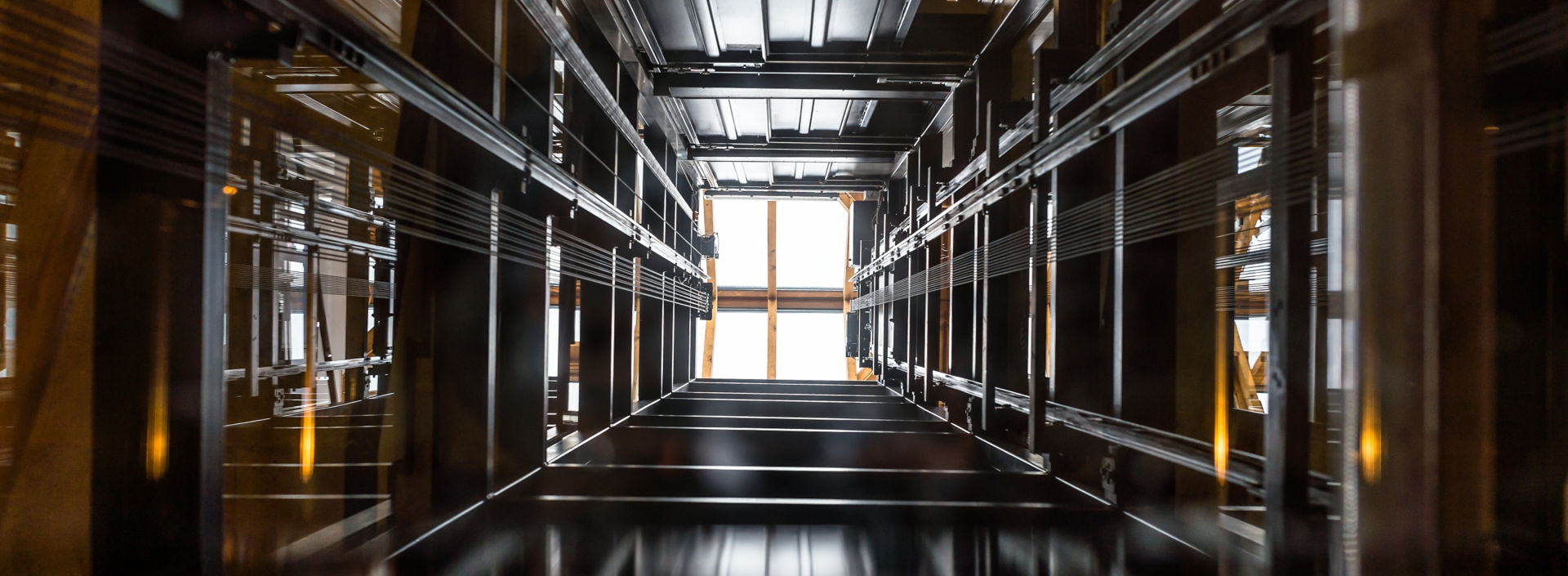Modern elevator technology has come a long way in terms of safety features, making elevators safer than ever before. Here are some of the most important safety features that can be found in most modern elevators.*
Overspeed Governor
Prevents the elevator from descending too quickly and engages brakes if necessary.
Emergency Brakes
Critical backup systems that engage during malfunctions to safely stop the elevator.
Electrical and Mechanical Safety Components
Elevators have advanced electrical components like controllers, sensors, and software systems that work with mechanical parts to ensure safety.
Door Safety Systems
Equipped with sensors and detectors to prevent doors from closing on people or objects.
Light Curtains
An advanced sensor system on elevator doors, consisting of a series of light beams across to detect any obstructions and reopen the doors if necessary.
Emergency Communication
Features emergency buttons to connect passengers with building personnel or emergency services.
Overload Sensors
<p>
These sensors prevent operation if the elevator's weight limit is exceeded, protecting the elevator's mechanisms and passengers.</p>
Emergency Features for Power Failure
Includes safety mechanisms like overflow valves and chain protection that activate during power outages.
Firefighter's Service
Modern elevators include a special operating mode for firefighters, allowing them to control the elevator during a fire incident. This mode bypasses normal elevator functions, giving emergency services priority and control to safely evacuate occupants or reach different floors during emergencies.
Modern Security Systems
Today's elevators often come with integrated security systems that can include keycard access, surveillance cameras, and alarms. These systems are designed to prevent unauthorized access and ensure the safety of passengers by closely monitoring elevator usage and maintaining a secure environment.
Safety is Top Priority, Always
These safety features collectively ensure modern elevators transport passengers efficiently, securely, and safely. Regular maintenance, inspection, and testing are critical to maintaining elevator safety. Australian regulations, including those outlined by Safe Work Australia and Standards Australia, mandate regular safety inspections to keep elevators compliant and safe.
Overall, elevator safety has significantly improved due to technological advancements, making elevators among the safest and most convenient modes of transportation available today.
More Information
For more about escalator safety, see more on our page about elevator and escalator safety. For more on how KONE can keep your elevator running safe, see KONE Escalator and Elevator Maintenance Services. Information about modernizing or replacing your old, outdated elevator, see KONE Elevator Modernization.
*Please note that the safety features depicted are for illustrative purposes only and may not represent the full range of safety features available on all elevators or in all locations. Availability and implementation of these features can vary based on the manufacturer, model, and regional safety regulations. Always refer to the specific safety guidelines and instructions provided by the elevator manufacturer or local authorities for the most accurate and comprehensive safety information.
